Finding Flowers name starting with q can be a challenge, as there aren’t many flowers with that initial. However, one flower that comes to mind is Queen Anne’s Lace. This wildflower is native to Europe and Asia, and it’s characterized by its lacy white petals that surround a small, purple center.
Another flower that starts with “Q” is the quaking grass, which is known for its slender, swaying stems that dance in the wind. This plant is often used in ornamental gardens, and it produces small, delicate flowers that are a light green color. Finally, there is the quince flower, which is a small, woolly shrub that’s native to Asia.
This flower produces fruit that can be used in cooking, and its delicate pink petals make it a popular addition to gardens. While there are only a few flowers that start with “Q,” each one is unique and beautiful in its own way.
Flowers Name Starting with Q
Quaker Ladies
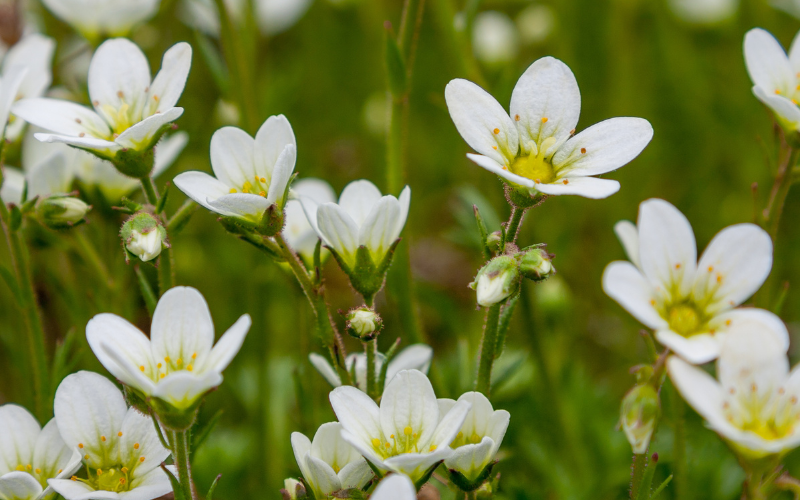
Quaker Ladies is a common name for the flower species Houstonia caerulea. It is also known as bluets or innocence. Quaker Ladies are found in a variety of environments throughout eastern North America, including open forests, meadows, and rocky places. They are particularly prevalent in locations with acidic soils.
Quaker Ladies typically bloom in early spring, often around the same time as other early spring wildflowers. They are among the first wildflowers to appear, adding a touch of color to the landscape after winter.
| Scientific Name | Houstonia caerulea |
| Native Range | Eastern North America |
| Flowering Season | Spring to early summer |
Queen Anne’s Lace
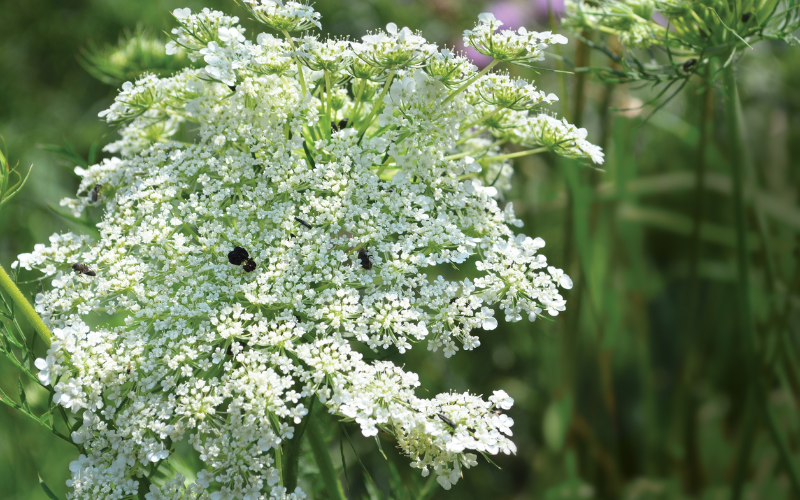
Queen Anne’s Lace is a blooming plant technically known as Daucus carota. It is also known as a wild carrot or bird’s nest. Queen Anne’s Lace is native to Europe and southwest Asia, but it has naturalized and spread throughout much of North America. It is a tough plant that can survive a wide range of soil types and growing conditions.
Queen Anne’s Lace has a number of metaphorical connotations. It is frequently associated with delicacy, softness, and subtle beauty. The plant’s mythology and symbolism are enhanced by the center dark bloom in the inflorescence, which is thought to represent a drop of Queen Anne’s blood.
| Scientific Name | Daucus carota |
| Native Range | Europe and southwestern Asia |
| Flowering Season | Summer |
Queen of the Meadow
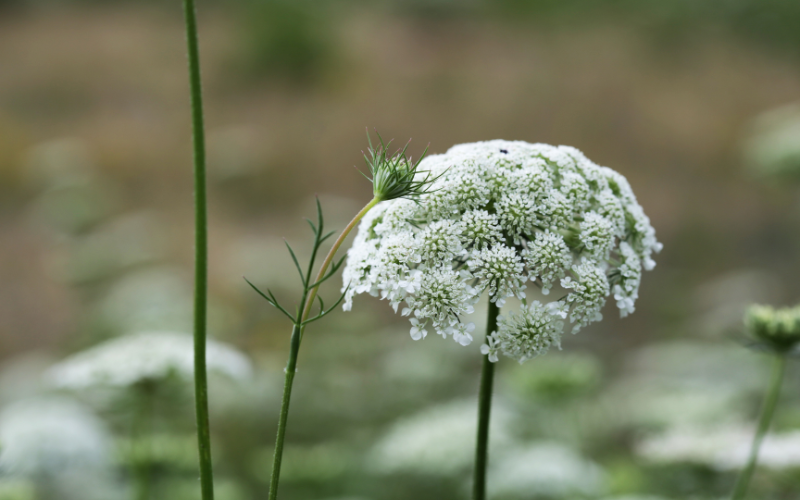
Queen of the Meadow is a common name for the flower Filipendula ulmaria, which is also known as meadowsweet. Queen of the Meadow typically blooms in the summer, from June to August, depending on the location and climate.
Queen of the Meadow has a long history of traditional medicinal uses. The flowers and leaves contain salicylates, which are compounds similar to aspirin and have mild pain-relieving and anti-inflammatory properties. It has been used to alleviate headaches, fever, and digestive issues, and as a general tonic. It is also used in herbal teas and as a flavoring agent.
| Scientific Name | Filipendula ulmaria |
| Native Range | Europe, Asia |
| Flowering Season | Summer |
Quince
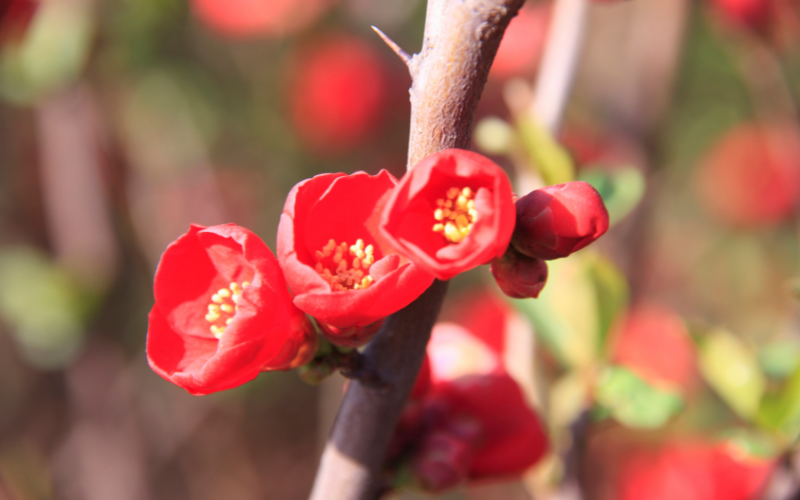
The blossoms of the quince tree (Cydonia oblonga), a fruit-bearing tree native to Southwest Asia, are known as quince flowers. Quince trees are well-known for their lovely and fragrant blossoms, which bloom in the spring. The flowers are often enormous and spectacular, with five petals ranging from pale pink to white. They frequently have a lovely scent that attracts bees and other pollinators.
In some cultures, quince flowers have symbolic meanings. For example, in ancient Greek mythology, the quince tree was associated with love and fertility, and quince fruits and flowers were often used in wedding ceremonies.
| Scientific Name | Cydonia oblonga |
| Native Range | Southwest Asia, including countries such as Iran, Turkey, and the Caucasus region |
| Flowering Season | Early spring |
Queen of the Prairie
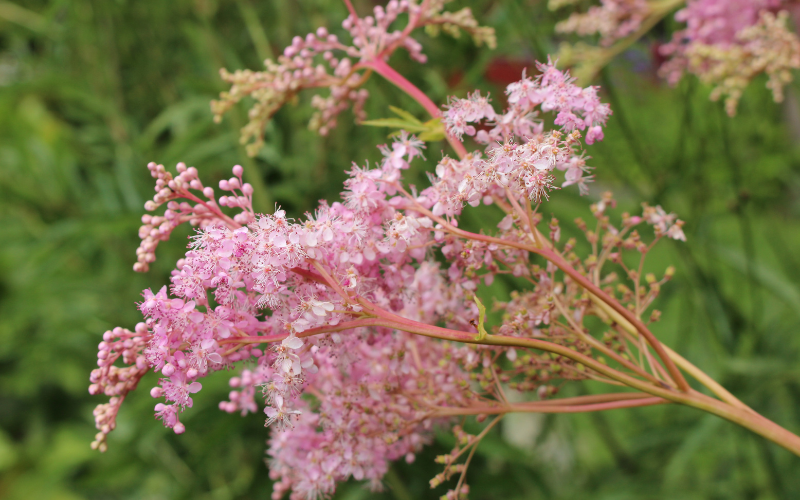
The Queen of the Prairie (Filipendula rubra) is a North American flowering perennial plant. It is well-known for its tall, exquisite spikes of pink flowers that bloom from June to August. The flowers are held above the fern-like foliage of the plant, making for a spectacular show in gardens and natural surroundings.
This plant is most commonly found in wetland regions like marshes, meadows, and along the edges of streams or ponds. It grows in full sun to partial shade and prefers damp to wet soil conditions.
| Scientific Name | Filipendula rubra |
| Native Range | North America |
| Flowering Season | Summer |
Queen’s Wreath
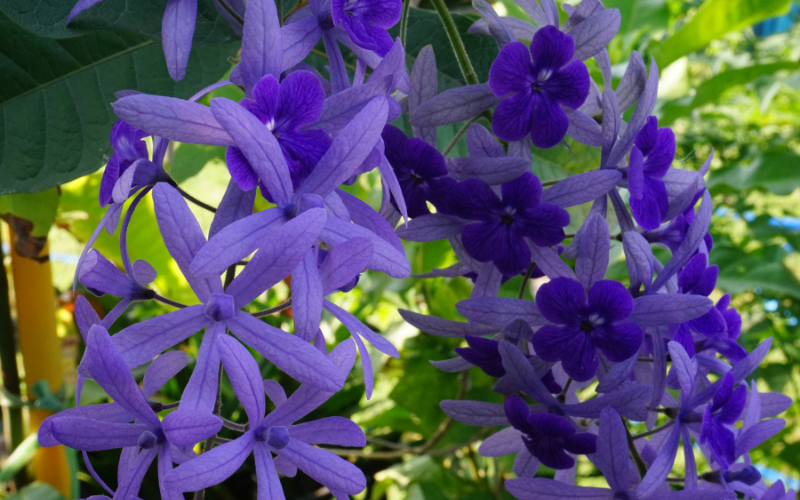
The Queen’s Wreath (Petrea volubilis) is a flowering vine native to the Americas’ tropical areas. Other names for it include Purple Wreath, Sandpaper Vine, and Blue Bird Vine. When in full bloom, the plant is prized for its gorgeous clusters of lavender to violet-blue flowers that resemble a wreath.
Queen’s Wreath thrives in tropical and subtropical climates. It prefers full sun to partial shade and well-drained soil. In ideal conditions, it can be a fast-growing and vigorous vine.
| Scientific Name | Antigonon leptopus |
| Native Range | Mexico and Central America |
| Flowering Season | Spring |
Question & Answer
Can flowers be frozen?
Yes, flowers can be frozen, but it’s important that the freezing process can affect their appearance and texture.
What is the youngest flower?
The youngest flower is typically the bud of a flower that has not yet fully opened or bloomed.
Which flower is called the King of Water?
The flower commonly referred to as the “King of Water” is the Water Lily (Nymphaea spp.).
Which is called a crown flower?
The flower commonly referred to as the “Crown Flower” is the Calotropis gigantea, also known as the Giant Milkweed or Giant Calotrope.
How old is the oldest flower?
The oldest known flower is believed to be around 140 million years old.
